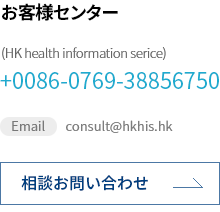免疫治療 | 大腸がんCAR-Tの臨床 CEA
페이지 정보
作成者 HK HIS 作成日19-09-16 18:21 照会506回 コメント0回관련링크
본문
Brief Summary:
The main purpose of this research is to verify the safety of CEA targeted chimeric antigen receptor T cells and to determine the proper dosage of CAR T cells infused.
Lung Cancer
Colorectal Cancer
Gastric Cancer
Breast Cancer
Pancreatic Cancer
Biological: Anti-CEA-CAR T
Detailed Description:
Chimeric antigen receptor (CAR)-modified T cells have demonstrated great successes in treating even late stage cluster of differentiation antigen 19 (CD19) positive B cell malignancies. But it has not yet been fully explored in solid tumors. The carcino-embryonic antigen(CEA) is widely expressed in cancers like gastric cancer, lung cancer, pancreatic cancer, breast cancer and colorectal cancer. To confirm if CAR T cells still function in solid tumors, we have developed anti-CEA CAR-modified T cells. Preclinical studies have demonstrated effective killing of CEA target cells. In this study, the CEA CARs, will be evaluated in CEA positive gastric cancer, lung cancer, pancreatic cancer, breast cancer and colorectal cancer patients. The primary goal is to confirm its adverse effects including cytokine storm response and any other adverse effects. In addition, tumor targeting and disease status after treatment will also be evaluated.
Arms and Interventions
Arm
| Intervention |
Pancreatic cancer Pancreatic cancer treated with Anti-CEA-CAR T.
| Biological: Anti-CEA-CAR T T cells modified with CEA targeted chimeric antigen receptor.
|
Lung cancer Lung cancer treated with T cells modified with Anti-CEA-CAR T.
| Biological: Anti-CEA-CAR T T cells modified with CEA targeted chimeric antigen receptor.
|
Gastric cancer Gastric cancer treated with T cells modified with Anti-CEA-CAR T.
| Biological: Anti-CEA-CAR T T cells modified with CEA targeted chimeric antigen receptor.
|
Breast cancer Breast cancer treated with T cells modified with Anti-CEA-CAR T. Colorectal cancer Colorectal cancer treated with T cells modified with Anti-CEA-CAR T.
| Biological: Anti-CEA-CAR T T cells modified with CEA targeted chimeric antigen receptor. Biological: Anti-CEA-CAR T T cells modified with CEA targeted chimeric antigen receptor.
|
Primary Outcome Measures :
- Adverse events of each patient. [ Time Frame: 3 years ]
Determine the toxicity profile of the CEA targeted CAR T cells with Common Toxicity Criteria for Adverse Effects (CTCAE) version 4.0.
Secondary Outcome Measures :
- Survival time of Anti-CEA CAR T cells in vivo. [ Time Frame: 3 years ]
To evaluate the presence of circulating CAR T cells with flow cytometry and real time PCR in patient blood.
- Efficacy of anti-CEA CAR T cells to confirm the ability of CAR T cells to kill CEA positive cancer cells [ Time Frame: 12 weeks ]
- Maximum tolerated dose (MTD) of CEA targeted CAR T cells. [ Time Frame: 4 weeks ]
To confirm the maximum tolerated dose of CEA targeted CAR T cells.
Ages Eligible for Study: | 18 Years to 80 Years (Adult, Older Adult) |
Sexes Eligible for Study: | All |
Accepts Healthy Volunteers: | No |
Criteria
Inclusion Criteria:
1. Relapsed or refractory CEA positive lung cancer, pancreatic cancer, gastric cancer, breast cancer and colorectal cancer.
2. KPS>60.
3. Life expectancy>3 months.
4. Gender unlimited, age from 18 years to 80 years.
5. Disease progresses but reserves reaction to recent treatments.
6. Patients who have failed at least one line of a standard treatment.
7. No serious mental disorder.
8. Patients must have adequate cardiac function(no cardiac disease, LVEF≥40% ), adequate pulmonary function as indicated by room air oxygen saturation of >94%, and adequate renal function(Cr≤133umol/L).
9. No other serious diseases(autoimmune disease, immunodeficiency etc.).
10. No other tumors.
11. Patients volunteer to participate in the research.
Exclusion Criteria:
1. KPS<50.
2. Patients are allergic to cytokines.
3. MODS.
4. Uncontrolled active infection.
5. Acute or chronic GVHD.
6. Treated with T cell inhibitor.
7. Pregnancy and nursing females.
8. HIV affected.
9. Other situations we think improper for the research.





